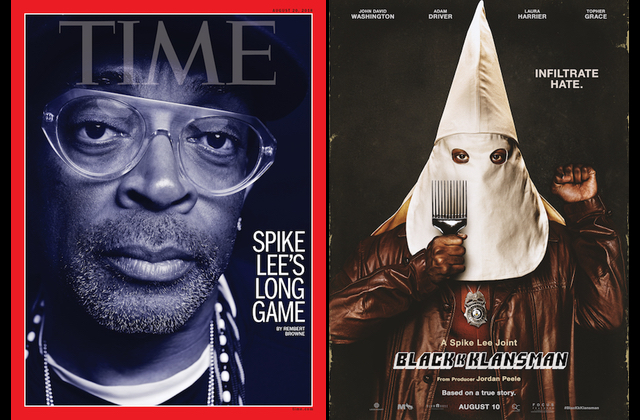Ahead of tomorrow’s (August 10) premiere of his film “BlacKkKlansman,” director Spike Lee sat down with writer Rembert Browne at Martha’s Vineyard for a chat about why this movie is an essential addition to the film canon.
The movie adapts Ron Stallworth’s memoir, “Black Klansman,” which explores how the first Black detective with the Colorado Springs Police Department infiltrated the Ku Klux Klan. It hits theaters in time to mark the anniversary of the deadly Unite the Right march that White supremacists held in Charlottesville, Virginia, on August 12, 2017.
Here are some key passages from the Time magazine article:
On President Donald Trump’s racist digs on LeBron James:
rntHe’s always drawing boundaries, because he never wants to be sanitized. And simply existing as Black in any White space requires grappling with the so-called benefits of being seen as “safe.” This way of thinking permeates society today, from art to politics to sports. “There’s this thinking that athletes should just run up and down the field, run around the bases, run down the court, play ball and shut the f-ck up,” Lee says. “But there’s a history of that not being the case. And the powers that be don’t like that.”
This feeling is exacerbated by a president who has moved from coded dog-whistling to what goes well beyond that, including consistent public attacks on prominent Black Americans. Trump’s recent tweets about LeBron James’ intelligence are a prime example. “He has a thing for Black athletes,” Lee says. “He does not like them brothers making that money.” But it runs even deeper than that. “This stuff is all planned,” he continues. “The sneaky thing is, he tried to start some sh-t between Michael [Jordan] and LeBron. That’s the old divide and conquer.”
On revisionist history and Black patriotism:
rnt“Let’s stop telling lies and teaching young people bullsh-t. The United States of America’s foundation is genocide of native people and slavery!”
At this point, Lee is at his loudest. He laughs every time he brings up something obvious. “That’s the foundation—the very fiber,” he says, standing up on the sidewalk, with three men on their boat watching him. “No people have been more patriotic than Black folks, who shouldn’t be.”
On the importance of remembering who you are:
rntThis is Lee’s way of wondering when Black people, liberals and Americans in general will stop falling for what he repeatedly calls the “okey-doke.” By that he means the tricks—which Lee calls the skulduggery, the shenanigans, the subterfuge and the bamboozlement—that straight, White American men masterfully use to stay in control. Lee is a student of history, and so he understands where these tricks are hiding and what form they might take in the future. He’s obsessed with the okey-doke. And it explains so much of why Lee is the way he is.
For decades now, Spike Lee has been characterized as indignant, a coded way of saying, “Why, rich man, are you still so angry?” It’s a common trap: main-stream society can make successful Black people prioritize smiling more and complaining less. And many successful Black people, as Lee sees it, forget who they are and who came before them. “People become delusional and think they’re not Black anymore because they are accepted—it’s the okey-doke,” Lee says. “You can say that now, but they still think you’s a nigger.”
Read the full article here.
